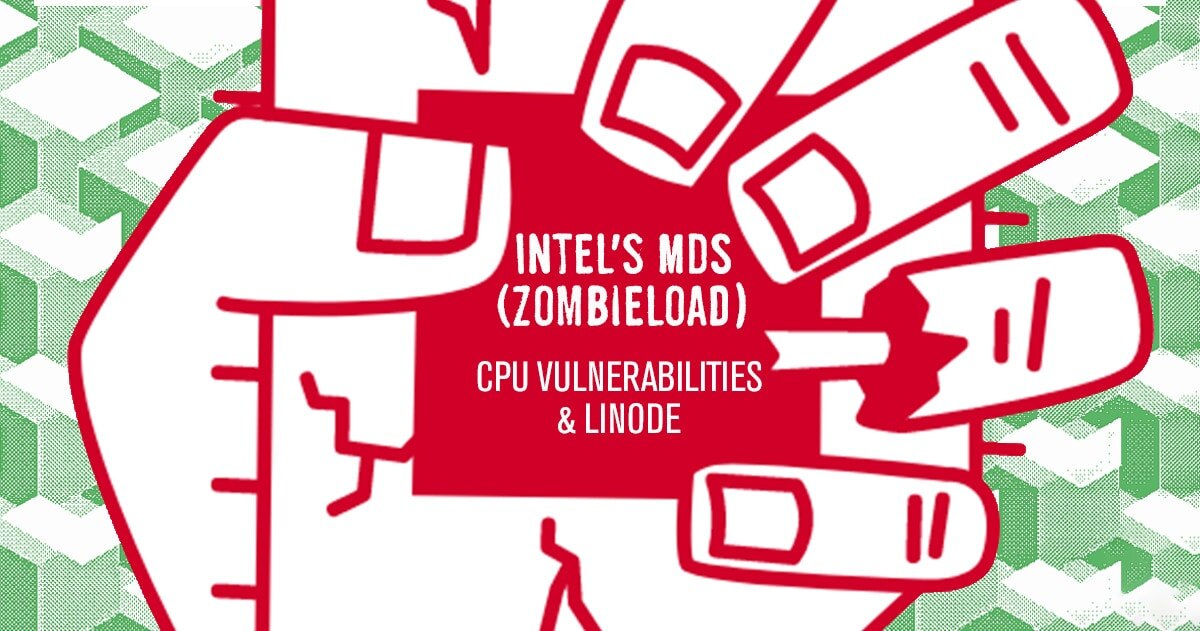Questa settimana Intel ha rivelato pubblicamente un gruppo di vulnerabilità dei processori noto come Microarchitectural Data Sampling (MDS), anche noto come "ZombieLoad". L'MDS colpisce i sistemi che ospitano macchine virtuali provenienti da domini di sicurezza diversi e/o di cui il proprietario del sistema non si fida completamente, tra cui l'infrastruttura di Linode e gli stessi Linode. Questa guida contiene ulteriori informazioni dettagliate su queste vulnerabilità e sulla loro mitigazione.
Abbiamo iniziato le attività di mitigazione e prevediamo la completa mitigazione del nostro parco macchine nelle prossime settimane. Questi sforzi di mitigazione potrebbero richiedere un'interruzione dei vostri sistemi in funzione, ma comunicheremo chiaramente qualsiasi manutenzione programmata o coordinamento richiesto dai nostri clienti tramite un ticket di supporto.
Per risolvere queste vulnerabilità, abbiamo rilasciato un nuovo kernel (5.1.2) con le relative mitigazioni, quindi assicuratevi di selezionare questo kernel nel profilo di configurazione del vostro Linode, quindi riavviate. Se si utilizza un kernel fornito dalla distribuzione, sarà necessario aggiornare il kernel di conseguenza. Come sempre, è necessario assicurarsi che il proprio Linode sia aggiornato e protetto.
Vi terremo aggiornati qui nelle prossime settimane mentre procediamo con i nostri sforzi di mitigazione.









Commenti (13)
Is the “Latest 64-bit” Kernel going to be sufficient or do all servers need to be using the 5.x kernel?
Hey, Jim. At the moment, the “Latest 64-bit” kernel is not patched for MDS — we’ve delayed changes due to a kernel bug involving inaccurate ‘uptime’ reports. We instead recommend booting into 5.1.2-x86_64-linode124 for 64-bit systems, or 5.1.2-x86-linode144 for 32-bit systems. Once the kernel bug has been completely resolved, you could then switch back to the “Latest”.
Linode offer two 5.1.2 kernels. One is 5.1.2-x86-linode144 and caused kernel panic on Debian 9. 5.1.2-x86_64-linode124 works. Thanks to support for guiding me to this point. It should be added to the post here.
Hi there, John. The 5.1.2-x86-linode144 kernel is designed for 32-bit systems. It will not work properly on 64-bit systems. For 64-bit systems you will want to use the 5.1.2-x86_64-linode124 kernel. For all 64-bit systems you will want to look for the kernels that include “_64” in the title.
Any particular reason for the “latest-kernel” to stuck at 4.18.6 ?
Update?
Great and useful post, Thanks for sharing
Bookmarking the blog for future reference.
What is the expected performance impact of the mitigation?
Viktor: We don’t anticipate performance impacts coming from ZombieLoad mitigation. However, disabling HyperThreading as part of our mitigation strategy for speculative operation vulnerabilities poses a clear challenge regarding performance, so accordingly we’ve been working to minimize its impact on our platform. (You can find more discussion on HyperThreading here.)
If you’re seeing degraded performance on any of your Linodes, please reach out to us so we can help investigate and find a solution.
Can we use the new kernel for Debian 7 machines?
Hi Mike – Yes. No issues with our latest kernel and Debian 7. I’d recommend reading through our Reboot Survival guide, though, if it’s been awhile since you’ve needed to reboot some of your machines:
> https://www.linode.com/docs/guides/reboot-survival-guide/
If you’ve regularly kept your server up to date, issued reboots periodically and have always used the latest kernel, you’re more likely to be okay if you continue to use it. Having a restore plan in place in the event anything goes wrong is always recommended, though, since there are a lot of variables at play.
Other posts mentioned a live-migration capability now. That doesn’t work for host updates?
Are you moving towards the only needed reboots to be for upgrade/downgrades and updating our kernel?
Hi Avi – Technically speaking, for small scale host updates, live migrations would work. Though since CPU vulnerability mitigation is a much larger effort, it’s logistically more efficient to cold migrate servers to patched hosts, or apply the needed patches during the maintenance window. As for your second question:
> Are you moving towards the only needed reboots to be for upgrade/downgrades and updating our kernel?
Yes, though this is a long term effort, and I don’t have anything immediate to share regarding an ETA.